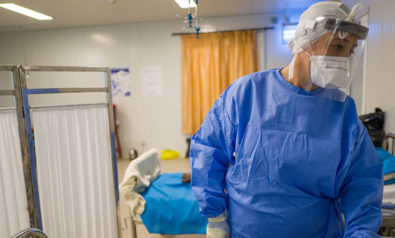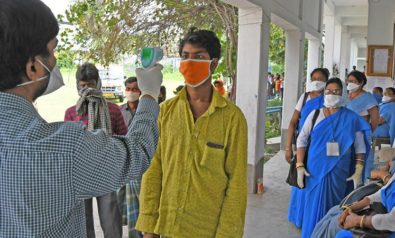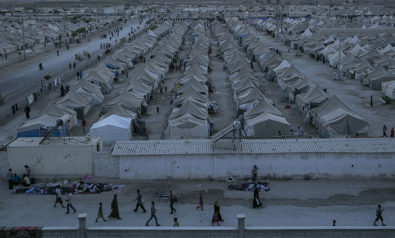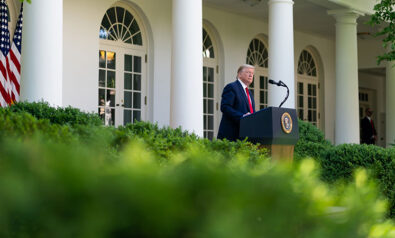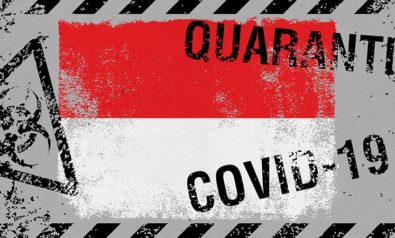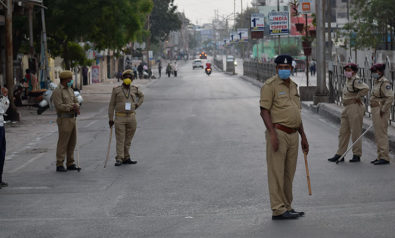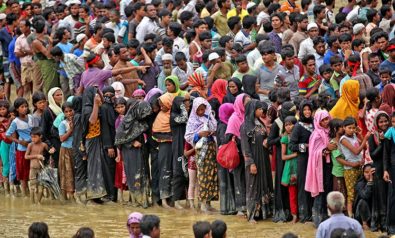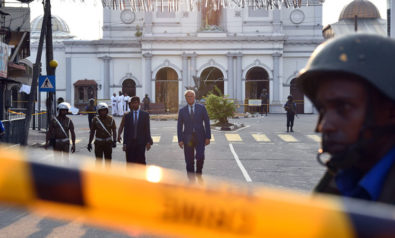It appears paradoxical that the new coronavirus that causes the COVID-19 disease was not found in Central Asia until mid-March. The region’s highly mobile societies border directly on China, with which intense bilateral relationships exist.
At the end of January, Kazakhstan closed some of its border crossings to China, including the major trade hub of Khorgos on the east-west axis of China’s “Belt and Road Initiative.” Travel restrictions were also imposed, with quarantine for travelers from China and, subsequently, from other countries too. Kyrgyzstan soon followed suit and, in the ensuing weeks, Tajikistan and Uzbekistan also tightened entry requirements, imposing a quarantine on travelers from high-risk countries — or, in the case of Turkmenistan, by closing their borders entirely.
Why Are Mexico and Brazil So Slow in Reacting to COVID-19?
By February, authorities had denied rumors circulating on social media, and on March 10, Kazakhstan warned its population that cases should be expected. Three days later, the first COVID-19 infection was confirmed. Uzbekistan and Kyrgyzstan reported their own first cases shortly thereafter. In all three countries, the official version was that the coronavirus had not been introduced from China, but by travelers from Europe, the United States or Saudi Arabia.
Numbers have since risen in all three nations, but they remain relatively low to date. All three have declared a state of emergency, with Kazakhstan and Uzbekistan taking vigorous action. Kazakhstan has placed its two largest cities, Nur-Sultan and Almaty, on lockdown, and Uzbekistan is also taking rigorous steps. The Uzbek government has set up a crisis fund of $1 billion to tackle the health and economic impacts and is building hospitals. A website also provides relevant information for the public, and it calls on people to stay at home. Nurseries, schools and universities are closed, and public transport in the capital has been shut down.
No Worries in Tajikistan
The coronavirus has not yet affected Tajikistan — at least if the official narrative is to be believed. Mosques were closed at the beginning of March but have since reopened. Otherwise life continues as normal. Although there have been reports of panic buying and steep price rises for staples like flour, cooking oil and sugar, the government has acted with calm.
The ministry of health and social protection says the public should not believe rumors about the epidemic, and the president himself urged people not to panic over the “various infections” circulating globally. The coronavirus is not discussed in schools and universities, despite reader comments online describing school classrooms full of coughing students. While all its neighbors canceled the Persian New Year celebrations on March 20-21, Tajikistan marked the date as normal and held mass events and street festivals that were attended by thousands of people.
At the same time — apparently just as a precaution — hospitals are being cleared to make space for possible coronavirus patients. A government committee has been charged with planning anti-epidemiological measures but has yet to issue any official pronouncements. A number of states, including Germany, are providing or funding the purchase of protective equipment and accessories, first and foremost for medical personnel. In the meantime, a certain amount of funding and material has most like arrived, but will it be put to good use?
Social “Immunization”
In medical terms, Tajikistan is poorly equipped for a national epidemic. The health service is in a catastrophic state and conditions in quarantine facilities are more likely to accelerate than slow the spread of the coronavirus. Not all of the donated equipment will reach its intended recipients — some will find its way to pharmacies that will then sell it on at inflated prices. But the attitude toward the virus is at least as decisive as the question of the provision of basic materials.
A specific social situation enables politicians to ignore the possible dangers of an epidemic. The reasons are both demographic and cultural in nature. Tajikistan is a young country with a rapidly growing population. Only 9% of the population is over 55 years of age. Chronic conditions, especially cardiovascular and metabolic diseases, are prevalent among elderly people. The attitude to death is fatalistic as life-prolonging measures are only available to those who can afford them. In Tajikistan, this means just a tiny fraction of society.
The attitude to sickness and health are heavily influenced by traditional medicine and religion. There is also no shortage of recommendations on social networks where “corona” is ubiquitous. One of the most popular ideas is the smoke of burning esfand seeds (peganum harmala), which is a widely-used traditional remedy. Another is reciting Surah Ya-Sin, a chapter in the Quran. It is assumed that these recommendations are taken seriously by many Tajiks.
COVID-19 is expected to spread to Tajikistan. A few cases will probably soon be reported officially, simply for reasons of credibility. But the numbers will likely remain low. And who is going to verify them anyway? In view of the lack of capacity to take meaningful action, making society immune by mobilizing cultural resources is an obvious option.
*[This article was originally published by the German Institute for International and Security Affairs (SWP). A German version was translated into English by Meredith Dale.]
The views expressed in this article are the author’s own and do not necessarily reflect Fair Observer’s editorial policy.
Support Fair Observer
We rely on your support for our independence, diversity and quality.
For more than 10 years, Fair Observer has been free, fair and independent. No billionaire owns us, no advertisers control us. We are a reader-supported nonprofit. Unlike many other publications, we keep our content free for readers regardless of where they live or whether they can afford to pay. We have no paywalls and no ads.
In the post-truth era of fake news, echo chambers and filter bubbles, we publish a plurality of perspectives from around the world. Anyone can publish with us, but everyone goes through a rigorous editorial process. So, you get fact-checked, well-reasoned content instead of noise.
We publish 2,500+ voices from 90+ countries. We also conduct education and training programs
on subjects ranging from digital media and journalism to writing and critical thinking. This
doesn’t come cheap. Servers, editors, trainers and web developers cost
money.
Please consider supporting us on a regular basis as a recurring donor or a
sustaining member.
Will you support FO’s journalism?
We rely on your support for our independence, diversity and quality.



